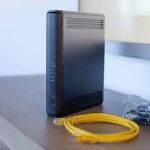Low water pressure is a common issue that can affect the functionality and comfort of your home. Whether it’s a trickle in the shower, slow water flow from the faucet, or poor pressure in the garden hose, low water pressure can be both inconvenient and frustrating. Identifying the cause of low water pressure is essential to restoring a consistent and strong flow throughout your home. With expert assistance from Excellence Plumbing & Heating Service in NJ, homeowners can address and resolve water pressure issues, restoring efficiency and comfort to their daily routines. Here’s a detailed look at the common causes of low water pressure and the best solutions to fix them.
Clogged Pipes Due to Mineral Buildup
One of the most common causes of low water pressure in homes, especially in areas with hard water, is mineral buildup within the pipes. Hard water contains high levels of calcium and magnesium, which can accumulate over time inside the pipes, creating a layer of mineral deposits. These deposits restrict the flow of water, leading to decreased water pressure. As the buildup worsens, the diameter of the pipe narrows, causing further restrictions and reducing flow.
Fixing mineral buildup often requires professional help, as it can be challenging to remove without specialized tools. One effective solution is to install a water softener, which helps reduce mineral deposits by softening the water before it enters the plumbing system. For existing buildup, Plumbing Services in Union, NJ can inspect the pipes and determine the best approach, whether it involves descaling, pipe replacement, or the installation of a water softening system to prevent future issues.
Leaks in the Plumbing System
Leaks in the plumbing system can significantly impact water pressure, as water escapes from the pipes before it reaches its destination. Even small leaks can reduce pressure throughout the home, making it difficult to achieve adequate flow in showers, faucets, or outdoor hoses. Leaks may occur due to pipe corrosion, loose fittings, or damaged connections, and they are often hidden behind walls or underground, making them difficult to detect without professional equipment.
If you suspect a leak, checking for signs such as damp spots on walls, a sudden increase in your water bill, or the sound of running water when fixtures are turned off can help confirm the issue. In such cases, contacting a professional is essential. Services like Excellence Plumbing & Heating Service in NJ use advanced leak detection equipment to locate and repair leaks efficiently, restoring normal water pressure to the home and preventing further damage to the plumbing system.
Corroded Pipes
Over time, pipes, especially older ones made of galvanized steel, can corrode, leading to blockages and decreased water pressure. Corrosion causes the interior of the pipes to become rough and constricted, limiting water flow. This issue is common in older homes, where the plumbing system may not have been updated to modern standards. Corroded pipes not only affect water pressure but also pose a risk of leaks or even pipe bursts if the corrosion weakens the pipe structure.
Replacing corroded pipes is often the best solution to restore water pressure and ensure the plumbing system’s longevity. Homeowners may opt to upgrade to copper or PEX piping, which is more resistant to corrosion. Plumbing Services in Union, NJ can evaluate the condition of your pipes and recommend replacement if necessary, ensuring a safer, more efficient plumbing system that maintains consistent water pressure.
Malfunctioning Pressure Regulator
A pressure regulator is a device installed in many homes to control the water pressure coming from the main supply line. Its role is to maintain a safe and steady pressure level, protecting the plumbing system and fixtures from damage due to high pressure. However, if the pressure regulator malfunctions, it may cause a drop in water pressure throughout the home.
If you notice a sudden change in water pressure, either too high or too low, it could be due to a faulty pressure regulator. Replacing or adjusting the pressure regulator typically requires a licensed plumber, as these devices are connected directly to the main water line. Professionals from Excellence Plumbing & Heating Service in NJ can test the regulator, adjust settings, or replace it if needed, ensuring that your water pressure remains consistent and within safe levels.
Partially Closed or Blocked Shut-Off Valve
Shut-off valves control the flow of water to different parts of the home. If a shut-off valve is partially closed or blocked, it can restrict water flow and lead to reduced pressure. This issue often arises after plumbing repairs or maintenance when a valve may not be fully reopened, or when mineral deposits accumulate around the valve over time.
Checking the shut-off valves in your home is a simple way to determine if they are the cause of low water pressure. Ensuring that they are fully open and free of obstructions can often resolve pressure issues. If you’re unsure how to locate or adjust these valves, or if the problem persists, Plumbing Services in Union, NJ can inspect and clear any blockages or repair valves as needed, helping to restore optimal water flow.
Issues with the Municipal Water Supply
Sometimes, low water pressure originates from issues within the municipal water supply. Maintenance work, broken water mains, or changes in water pressure within the city’s supply lines can lead to temporary drops in water pressure. In such cases, the problem usually affects multiple homes in the neighborhood and may resolve once the city completes any necessary repairs.
If you suspect that the low water pressure is due to a municipal issue, contacting your local water provider can confirm if they are experiencing any supply problems. However, if the issue persists beyond any temporary outages, it’s worth consulting a professional to rule out any underlying issues within your own plumbing system. Excellence Plumbing & Heating Service in NJ can help determine whether the low pressure is due to an external issue or if there is an internal problem that requires attention.
Clogged or Aging Fixtures
Fixtures like faucets, showerheads, and aerators can accumulate debris, sediment, and mineral deposits over time, which may block the flow of water. Clogged fixtures are particularly common in areas with hard water, as the minerals tend to settle and solidify within the small openings. This can lead to reduced water pressure in specific fixtures, while others in the home remain unaffected.
Replacing old fixtures with new, high-efficiency models is often a quick fix that can improve water pressure and enhance water flow. Additionally, removing aerators and showerheads and cleaning them periodically can help prevent buildup. For a comprehensive solution, homeowners can schedule a fixture inspection with Plumbing Services in Union, NJ, who can recommend and install new fixtures if necessary, restoring adequate water pressure throughout the home.
Broken or Faulty Water Heater
In some cases, low water pressure is only noticeable when using hot water, which may indicate a problem with the water heater. Sediment buildup in the water heater tank, a faulty heating element, or broken components within the unit can restrict the flow of hot water. This issue can be particularly inconvenient when trying to take a shower or run hot water in the kitchen.
Regular maintenance of the water heater can prevent these issues and maintain adequate hot water pressure. Flushing the water heater tank to remove sediment, replacing worn parts, and checking the unit for any defects are essential steps to keeping it in optimal condition. For professional water heater service, homeowners can rely on Water Heater Services in Union, NJ to perform thorough maintenance, ensuring that hot water flows efficiently and with proper pressure.
Inadequate Main Supply Line Size
If your home’s main supply line is too small for the household’s water usage, it can lead to low water pressure. The main supply line size is typically determined during construction based on expected water demand. However, if your water usage increases over time due to additions or upgrades, the existing supply line may no longer be adequate.
Upgrading the main supply line can resolve pressure issues by allowing a larger volume of water to flow into the home, meeting increased demand. This upgrade requires professional expertise, as it involves excavation and adjustments to the home’s main water supply connection. For such extensive work, Excellence Plumbing & Heating Service in NJ can handle the installation, ensuring that the new line meets the home’s needs and restoring consistent water pressure.
Conclusion: Maintaining Optimal Water Pressure in Your Home
Low water pressure can stem from various issues within the plumbing system, from clogged pipes and leaky fixtures to faulty water heaters and municipal supply issues. Identifying and addressing the cause of low water pressure not only improves daily comfort but also enhances the efficiency and longevity of the plumbing system. By working with professionals like Excellence Plumbing & Heating Service in NJ, homeowners can effectively diagnose and resolve these issues, ensuring a reliable and strong water flow throughout their home.



